Top 5 Health Benefits of Edamame
Edamame is one of the most popular and varied food crops on the planet. They are used to make soy protein, tofu, soybean oil, soy sauce, miso, natto, and ... read more...tempeh, among other things. Edamame, which was traditionally eaten in Asia, has acquired appeal in Western nations, where it is often consumed as a snack. This article outlines the most important scientifically proven health advantages of edamame.
-
Observational studies have linked elevated cholesterol levels to an increased risk of heart disease. According to one study, persons who ate an average of 25 grams of soy protein per day experienced a 3-4 percent drop in low-density lipoprotein cholesterol. It is unknown if these little improvements in cholesterol levels translate into a decreased risk of heart disease. Despite these concerns, the Food and Drug Administration (FDA) permits soy protein health claims for heart disease prevention.
Edamame is high in fiber, antioxidants, and vitamin K, in addition to being a good source of soy protein. These plant chemicals may lower the risk of heart disease and enhance the blood lipid profile, which is a measurement of lipids that includes cholesterol and triglycerides.
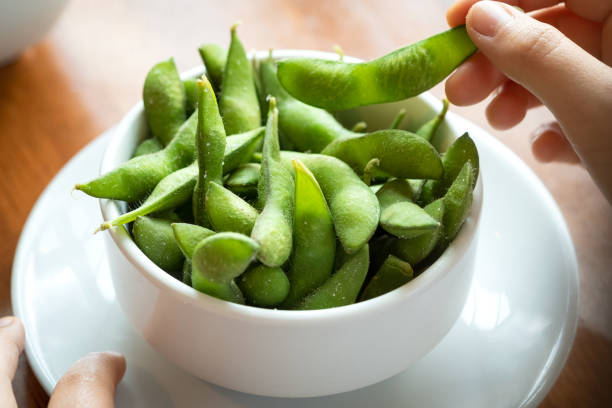
May lower cholesterol 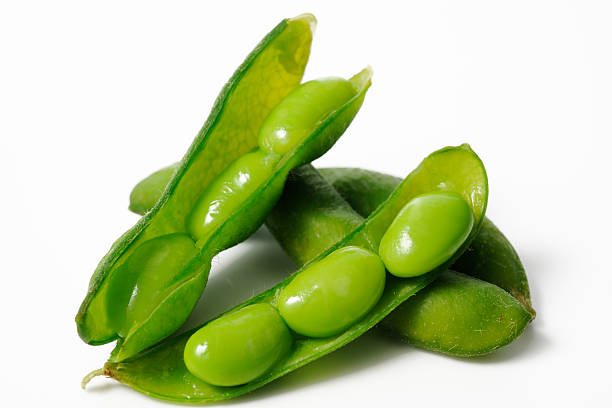
May lower cholesterol -
Those who consume a lot of easily digestible carbohydrates, such as sugar, on a daily basis may be at a higher risk of developing chronic illness. This is because a high-carbohydrate diet causes high post-meal blood sugar levels and poor blood sugar management, which may raise the risk of developing health disorders such as type 2 diabetes.
Edamame, like other beans, does not boost blood sugar levels substantially. It has a low carbohydrate content in comparison to protein and fat. It also ranks very low on the glycemic index, which assesses how much food raises blood sugar levels. As a result, diabetics can consume edamame.
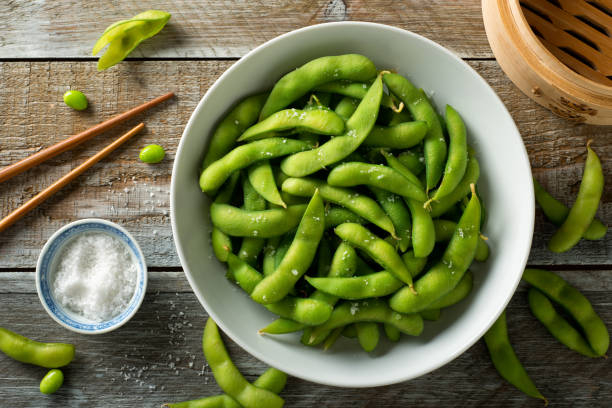
May promote healthy blood sugar regulation 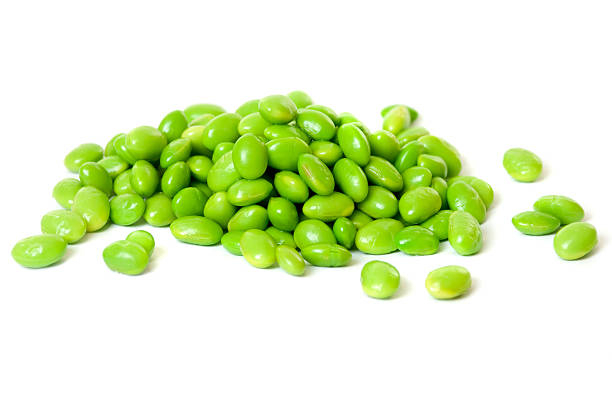
May promote healthy blood sugar regulation -
Protein consumption is critical for good health. Vegans and people who infrequently consume high-protein animal foods may need to pay extra attention to their daily diet. One source of worry is the low protein level of many plant diets. There are, however, a few exceptions. Beans, for example, are one of the greatest plant-based protein sources. They are, in fact, the foundation of many vegan and vegetarian diets. A cup (160 grams) of cooked edamame has around 18.4 grams of protein.
Soybeans are also a complete protein source. Unlike other plant proteins, they include all of the necessary amino acids that your body requires. Edamame has around 18.4 grams of protein, which is plenty for a plant meal. It's also a good source of protein, as it contains all of the necessary amino acids.

High in protein 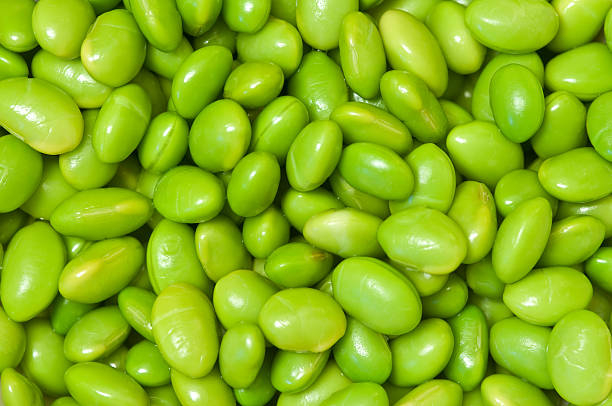
High in protein -
Soybeans are high in isoflavones, which are plant chemicals. Isoflavones are similar to the sex hormone estrogen and may bind weakly to estrogen receptors found on cells throughout the body. Because estrogen is considered to promote some forms of cancer, such as breast cancer, some experts feel that eating a lot of soybeans and isoflavones might be dangerous. Several observational studies have linked high consumption of soy products or isoflavones to an increased risk of breast cancer.
However, most similar research on Asian populations implies that a high diet of soybeans and soy products may lower the risk of breast cancer marginally. They also suggest that eating isoflavone-rich foods early in life may help protect against breast cancer later in life. Traditional Asian diets include more minimally processed soy foods such as tofu, tempeh, miso, and soy milk, whereas Western diets include soy-based meat substitutes or animal products with additional soy protein.
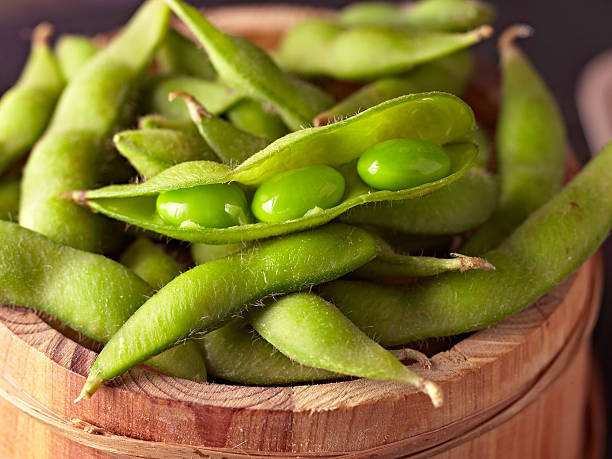
May reduce the risk of breast cancer in some populations 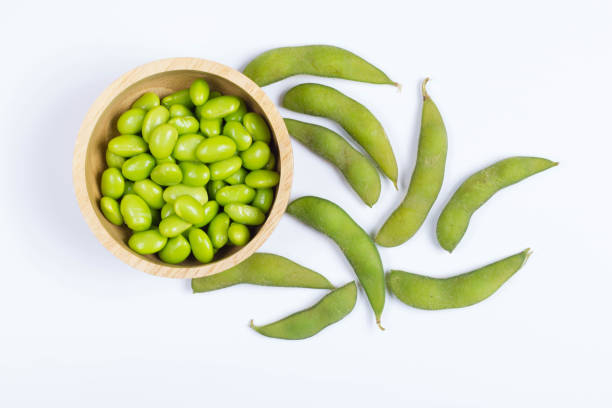
May reduce the risk of breast cancer in some populations -
Menopause is the period in a woman's life when menstruation ceases. This normal process is frequently coupled with uncomfortable symptoms such as hot flashes, mood swings, and sweating. Soybeans and isoflavones have been shown in studies to lessen these symptoms during menopause. Isoflavones and soy products, however, do not impact all women in the same manner. According to a study, women must have the correct sorts of gut bacteria to reap these benefits.
Certain bacteria may transform isoflavones into equol, a chemical thought to be responsible for many of soybeans' health advantages. People who have these specific types of gut bacteria are known as "equol producers". Equol producers are far more abundant in Asian people than in Western societies. This might explain why Asian women are less likely to develop menopausal symptoms than those in Western nations. The Asian diet's heavy intake of soybeans and soy derivatives might play an influence.
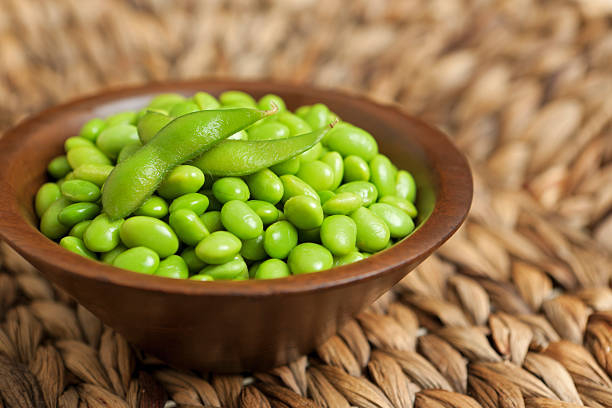
May reduce menopausal symptoms 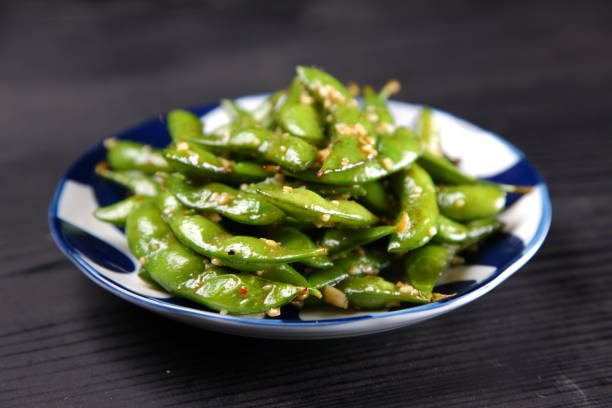
May reduce menopausal symptoms


























